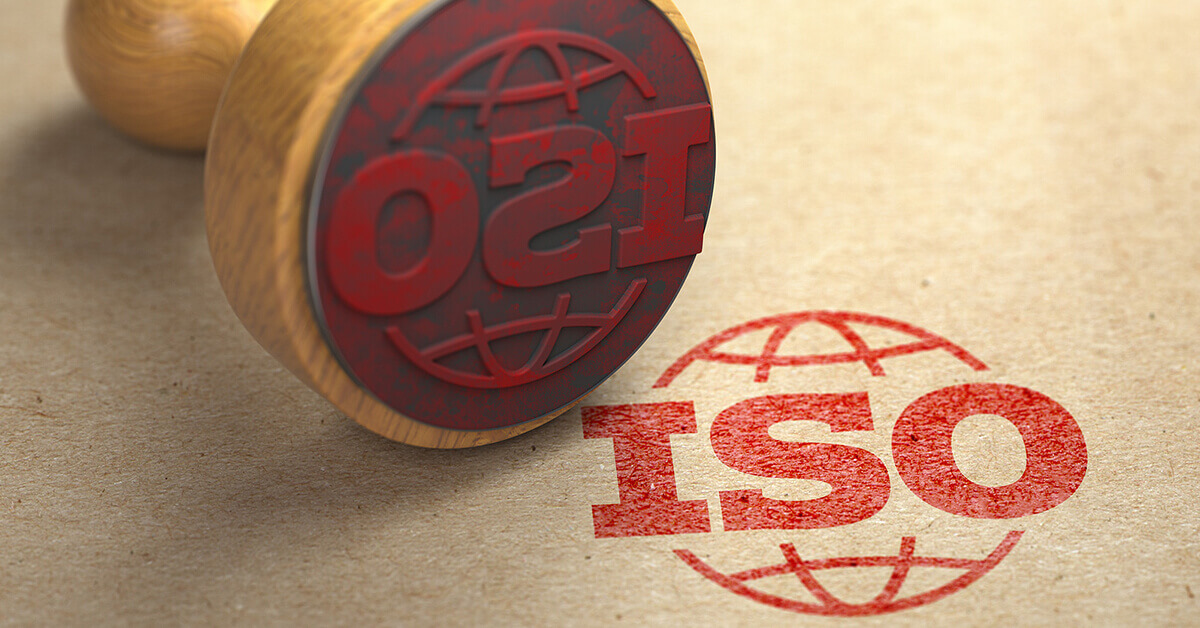In today’s competitive and rapidly evolving market, ISO certification has become essential for businesses striving to enhance their credibility, improve operational efficiency, and establish customer trust. ISO certification demonstrates a commitment to quality, environmental responsibility, and safety, which customers, partners, and regulatory bodies increasingly value. This blog explores the importance of ISO certification in today’s business environment. It outlines the specific steps companies can take to pursue and maintain ISO standards, enabling them to stand out in a crowded market.
Understanding ISO Certification and Its Relevance
ISO (International Organisation for Standardisation) certification provides a structured framework for organisations to meet industry-recognised standards across various domains, including quality management (ISO 9001), environmental management (ISO 14001), and information security (ISO 27001). These certifications assure customers and stakeholders that a business follows best practices and is committed to quality, safety, and efficiency. In a globalised economy, ISO certification has become a hallmark of reliability, helping companies build credibility and remain competitive.
Step 1: Enhance Business Credibility with ISO Certification
ISO certification demonstrates that a company upholds internationally recognised standards, boosting its credibility. For businesses aiming for partnerships, global expansion, or regulatory approvals, ISO certification serves as a vital credential, affirming their dedication to quality and excellence.
Actions to Enhance Credibility:
- Conduct a Gap Analysis: Start by assessing the current state of your operations against the requirements of the desired ISO standard. This analysis will help identify areas that need improvement to align with ISO requirements.
- Commit to Ongoing Compliance: ISO certification is not a one-time achievement; it requires ongoing monitoring and adjustments. Establishing a quality management team or appointing an ISO coordinator ensures that compliance efforts remain consistent and effective.
- Publicise Your Certification: Once you are certified, make it known. Displaying the ISO certification logo on your website, marketing materials, and product packaging demonstrates your dedication to meeting rigorous standards and strengthens trust among customers and partners.
ISO certification demonstrates a company’s commitment to excellence, making it a valuable asset for those looking to establish a strong reputation in the industry.
Step 2: Improve Operational Efficiency Through Structured Processes
ISO standards provide a framework for optimising processes and reducing inefficiencies, helping businesses operate more smoothly and effectively. By establishing clear processes, roles, and responsibilities, ISO certification enables companies to reduce waste, minimise errors, and improve overall productivity.
Steps to Improve Efficiency:
- Standardise Workflows: ISO standards encourage companies to create and implement documented processes, reducing inconsistencies and improving task efficiency. Standardisation ensures that each task is completed to the same high standard, regardless of who performs it.
- Implement a Continuous Improvement Cycle: Many ISO standards, such as ISO 9001, emphasise the importance of the Plan-Do-Check-Act (PDCA) cycle, which promotes continuous improvement. Regularly reviewing and refining processes helps identify potential areas for improvement and encourages a proactive approach to operational efficiency.
- Utilise Data and Metrics: ISO certification involves tracking performance metrics, allowing businesses to assess how well their processes align with ISO standards. Analysing this data helps companies identify trends, anticipate potential issues, and implement changes that lead to more efficient operations.
By implementing these structured processes, companies can reduce operating costs, minimise downtime, and enhance overall productivity, making them more resilient in a competitive market.
Step 3: Foster Customer Trust with a Commitment to Quality
Building and maintaining customer trust is essential in a crowded marketplace. ISO certification assures customers that a business prioritises quality, safety, and reliability, increasing their confidence in its products or services. Customers who know that a business adheres to ISO standards are more likely to trust the company, leading to long-term loyalty and a positive brand reputation.
Strategies to Build Customer Trust:
- Prioritise Customer Feedback: Many ISO standards, such as ISO 9001, focus on customer satisfaction and encourage businesses to gather and act on customer feedback. Implementing a structured feedback mechanism allows companies to identify areas of improvement, respond to customer needs, and build trust.
- Ensure Transparency in Operations: ISO certification emphasises accountability and transparency, which are crucial for building trust. By openly communicating ISO certification efforts, companies demonstrate their commitment to quality, enhancing customers’ confidence in their practices.
- Regular Audits and Quality Checks: ISO standards require companies to conduct regular internal and external audits. These audits ensure that processes remain effective and compliant, reinforcing to customers that quality and safety are consistently maintained.
Through these efforts, businesses meet customer expectations and establish themselves as dependable providers, fostering long-term customer loyalty.
Step 4: Streamline Regulatory Compliance with ISO Standards
ISO certification often aligns with industry regulations, making it easier for companies to meet legal and regulatory requirements. Compliance with ISO standards ensures that a company operates within a legally sound framework, reducing the risk of fines, legal issues, and reputational damage.
Compliance Management Steps:
- Align ISO Standards with Industry Regulations: Identify the regulations most relevant to your industry, such as environmental standards or data protection laws, and ensure your ISO certification efforts align with these requirements. ISO standards often overlap with legal regulations, making compliance more streamlined.
- Train Employees in Compliance: Effective compliance starts with a knowledgeable team. Provide training for employees on ISO standards and regulatory requirements to ensure that everyone understands their role in maintaining compliance.
- Stay Updated on Regulatory Changes: Regulatory landscapes evolve, and it’s essential to stay current with any changes that may impact your ISO compliance. Companies can remain compliant and avoid penalties by regularly reviewing and updating processes.
By aligning ISO standards with regulatory requirements, companies can simplify compliance management and operate with confidence, knowing they meet both industry and legal standards.
Step 5: Maintain Competitive Advantage Through Continuous Improvement
Companies must adapt to changing customer demands and industry advancements in a dynamic business environment. ISO certification promotes a culture of continuous improvement, helping companies stay competitive by identifying and implementing new ways to improve efficiency, quality, and customer satisfaction.
Steps to Sustain Continuous Improvement:
- Conduct Regular Performance Reviews: Schedule routine evaluations of processes and performance against ISO standards. Identifying areas that fall short and implementing corrective actions ensures ongoing improvements.
- Invest in Employee Training: Ongoing training keeps employees engaged and knowledgeable about best practices and standards. Educated employees can identify potential improvements, maintain compliance, and support a culture of continuous improvement.
- Set and Measure Key Performance Indicators (KPIs): Establish KPIs related to quality, efficiency, and customer satisfaction. Tracking these metrics helps gauge the effectiveness of ISO practices and enables adjustments as needed.
By fostering continuous improvement, companies meet ISO standards and position themselves to thrive in an increasingly competitive marketplace.
Final Thoughts on the Importance of ISO Certification
ISO certification has become a crucial component of success in today’s business environment, offering organisations significant advantages in credibility, operational efficiency, customer trust, and regulatory compliance. The structured processes promoted by ISO standards create an environment where quality, safety, and continuous improvement are prioritised, benefiting the business and its customers. ISO certification provides a robust framework for long-term success, from enhancing credibility to optimising processes and building customer trust.
As the demand for transparency and accountability grows, obtaining and maintaining ISO certification allows businesses to remain competitive and trustworthy. By adhering to internationally recognised standards, companies can build a reputation for quality and reliability, fostering stronger relationships with customers and stakeholders. Contact us today to learn more about how ISO certification can benefit your business and help you achieve excellence in every aspect of your operations.
If you are considering ISO certification for your business or need guidance on maintaining compliance, ISO Consulting Services is here to help. Our experts provide comprehensive support to ensure your business achieves and benefits from ISO certification. Learn how we can assist you in reaching your business goals. Experience Hassle-free Compliance with ISO Consulting Services.
Our expertise is to help our clients develop, implement, certify and maintain their management system through a hassle-free process and with a…
Read MoreThe National Disability Insurance Scheme (NDIS) provides about 460,000 Australians under the age of 65 with a permanent and significant disability with…
Read MoreAs the aged population is growing in Australia, the need for a range of care, accommodation, hospitality, and other services is undeniable. To address this growth…
Read More







